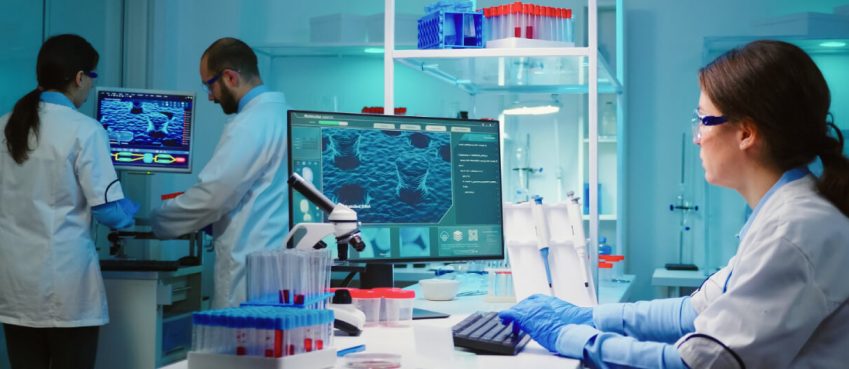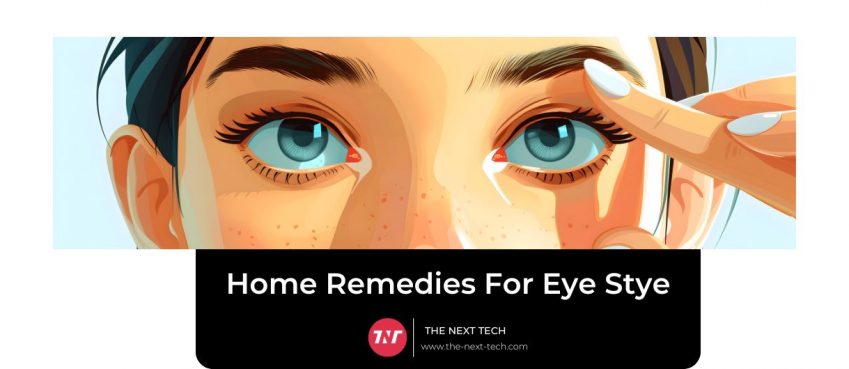
Let’s examine the roles of AI and ML within healthcare.
In the last few years, healthcare has seen a major transformation. A new ecosystem has emerged thanks to the influence and expansion of machine learning and AI. These two technologies are often referred to as magic wand, which can change the system.
The Rise of Health Mobile Apps – A Market Overview
Mobile health, also known as mHealth, refers to the delivery of medicine and public health services via mobile devices. The healthcare industry has seen significant growth in the use of mobile apps as digitalization is gradually extending to all segments.
The rapid growth of mHealth apps was a result of smartphone penetration. It registered $40.05 million in 2020. The market is expected to grow at a CAGR 17.7% between 2021 and 2030. Mobile health has over 31.000 apps that provide health services for patients and medical centers. This number keeps growing.
Mobile health is a broad field that offers investment and business opportunities. The segment is still lacking new technologies and business models. The current overview shows great potential for the US, UK, Germany, Canada and Israel. mHealth is poised to become an ecosystem due to its attractive market. It will provide digital solutions that improve quality of life.
Also read: What Is Gaming In Metaverse? 7 Best Metaverse Games To Play In 2024
Mobile Healthcare and Technologies
All Mhealth apps, such as telemedicine or medicine delivery, are designed to speed up medical services. Mobile technologies and this very responsible segment are already seeing positive changes.
EMERGENCY MEDICAL SERVICE (EMS) Data Collection
First, the traditional workflow in medical institutions was improved with a lot of paperwork. Digitalization enabled instant data access through data storage and collection. This enabled immediate reporting with no delay.
EHR (Electronic Health Record). Practices to Reduce Paperwork
Digitalizing patient records allows you to save time and help patients. EHR is the most popular technology that can make changes. To register patient data outside of the hospital, the service can be integrated with mobile apps and medicines delivery apps. HIPPA (Health Insurance Portability and Accountability Act) controls the technology. This organization protects the privacy of electronic data for digital technology implementation.
Also read: Seamless AI Review: Features, Pricing, & Getting Started (2024 Guide)
Timely Medications with Medicine Delivery App and App Rate App
The digital medical system improves the patient experience at home and in hospitals. Apps that are medicine-related, such as medicine delivery, offer more than just a delivery app. It saves patients’ history, e-prescriptions, online payment bills, etc.
Wearables and Health Trackers
These top gadgets are more than just fun. FDA-approved health trackers can now generate real-time data. This algorithm detects any possible danger and corrects it immediately.
Wearables for mass-market use are used to monitor personal health. Similar mobile apps can also process the data and send it to the backend server. This process is non-stop and creates reports for specific periods. It also allows users to track changes.
What technologies are used in mobile healthcare?
Apps and IoT are enabling healthcare to be more efficient, which is already smart. IoT devices include smartwatches and wearables as well as fitness trackers, smartwatches, smartwatches, and health devices. All of them provide continuous data collection and synchronization via mobile apps. This technology can send patient data to a doctor remotely and allow for further treatment.
AI and ML drive most of the mHealth functionality. These two technologies are the foundation of future healthcare.
Statistic of AI and ML Applications in Mobile Healthcare, 2022-2030
Market growth has been significant due to the impact of AI/ML game-changing technology on mobile healthcare. It is expected that the market will reach 35.892 millions by 2030. It has already reached $6.6 billion in 2021.
- AI will power 80% of the mobile technology used in healthcare apps.
- AI and ML are expected to replace 16% US jobs by 2025.
- By 2025, the market for AI-based wearables is expected to reach $180 billion
- China will hold 26% of the global AI market by 2030.
- AI applications will save $150 billion on healthcare in the United States.
Artificial Intelligence in the mHealth Industry
The greatest potential for automation in healthcare is found in artificial intelligence. Automation is needed in the healthcare industry, which will soon face a shortage of 9.9 millions physicians.
AI is often associated with human intelligence. It refers to the ability of a computer program or computer program to perform tasks. The mobile technology uses a variety of algorithms to enable devices to sense, gather data, and make predictions.
Also read: Chromecast vs Firestick: Which Is The Better Streaming Device? (A Complete Guide)
AI in Healthcare Industry
There are many artificial intelligence applications in mobile healthcare at the moment that can make apps more functional.
- Automated prescription and diagnosis. Chatbots can be used to assist patients as well as doctors. AI-based chatbots can give a diagnosis or prescribe a medication to the patient. Before a patient can talk to a doctor, the answer will be determined based on their symptoms.
- Prescription auditing. An AI audit system automates prescription errors and saves them in one place. This technology is used to create medicine rate apps.
- Real-time prioritization. AI-based perspective analytics of patient data allows for precise case prioritization.
- Personalized care and medication. AI uses patient data to generate the best treatment plan. The technology improves care effectiveness.
- Data Analytics. Data analytics was the first application of artificial intelligence. This technology allows you to save clinical data, discover insights and suggest actions.
- Chatbots for customer service. Customer service is more efficient with AI. It can provide instant answers regarding medicine delivery, appointments, billing payments, and other matters.
- New roles. The industry will require new talent to manage the new ecosystem of mHealth AI and mHealth. Data engineers and app developers are in high demand to support this technology.
Machine Learning in the Healthcare Industry
Implementing ML is the biggest technological innovation in the healthcare industry. These technologies enable healthcare to be digitalized for the smartphone-centric generation.
This technology is designed to create intelligent and autonomous devices that can operate without human interaction. A set of algorithms supports machine learning. This allows machines to function independently.
Also read: What Is Pokemon Sleep? The Pokemon App Will Put You To Sleep!
Use cases of ML in the Healthcare Industry
Mobile healthcare already uses machine learning and AI technologies to support it. Machine learning replicates the functions of our brains. It later uses neural networks for detecting changes that the human eye cannot detect. These are just a few examples.
- Drug discovery. Precision medicine is one of the most successful applications of ML. This is a new way to sequence drugs so that they have the best effect on patients.
- Individualized treatment. The body responds to drugs and treatment in a similar way to how it reacts differently to food. Some people may find the treatment helpful, while others may find it dangerous or ineffective. ML can be used to create personalized treatment based upon a patient’s history. The real-time monitoring of data will allow for the alignment of treatment based on abnormalities.
- Adjusting behavior. It is possible to correct daily behaviors using machine learning. The app supports alerts you to any activity that could be harmful for your health in the long-term.
- Improvement of health records. Maintaining health records is the main and most important outcome of ML. OCR recognition techniques are used to classify data.
- Behavioral modification. Behavioral monitoring of patients is one of the newest methods of implementing ML technology. This technology identifies lifestyle and behavioral changes that are important for a healthy mind and body. These solutions include mobile apps and wearables that are compatible with supported apps.
Wrapping Up
AI and ML will make the industry a step closer to new generations of healthcare. It is possible to overcome challenges such as security, data storage, and accuracy. You can create a revolutionary healthcare app that will change the lives of people.
- App that matches healthcare standards. To maintain privacy and functionality, the app must be trusted.
- Planning design. Health apps are best when you can use intuitive and interactive design to drive value.
- Integration with other platforms. Integration with existing software is a key factor in application recognition.
Healthcare will soon be the most expensive infrastructure due to its potential. It is possible to participate in the global healthcare market with advanced skills and knowledge.
Top 10 News
-
01
10 Exciting iPhone 16 Features You Can Try Right Now
Tuesday November 19, 2024
-
02
10 Best Anatomy Apps For Physiologist Beginners
Tuesday November 12, 2024
-
03
Top 10 Websites And Apps Like Thumbtack
Tuesday November 5, 2024
-
04
Top 10 Sites Like Omegle That Offer Random Video Chat
Monday October 21, 2024
-
05
Entrepreneurial Ideas To Make 5K In A Month (10 Realistic Wa...
Monday October 7, 2024
-
06
[10 Best] Cash Advance Apps Like Moneylion And Dave (No Cred...
Friday September 20, 2024
-
07
Top 10 Richest Person In The World
Tuesday August 27, 2024
-
08
Top 10 Unicorn Startups In The World (2024-25)
Monday August 26, 2024
-
09
Top 10 IT Companies In The World By Market Cap
Thursday August 22, 2024
-
10
[10 New] Best OnionPlay Alternatives To Stream TV Shows And ...
Tuesday June 11, 2024







